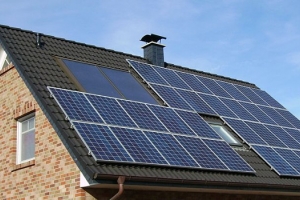How should NH reimburse residential solar?

New Hampshire's current "net-metering" law may need an update.
Under the net-metering law, utilities must pay a residential customer for any excess energy the customer generates with solar panels. That helps customers pay for the cost of installing panels.
However, the law also limits net-metering to 50 megawatts statewide, divided among the various utilities.
Most utilities are far away from meeting that 50 megawatt quota, but the New Hampshire Electric Coop has almost maxed out its share.
Coop customers who are considering solar panels now fear they may not be paid for the excess electricity they generate.
On one hand, raising the 50 megawatt cap might encourage more residential solar panels.
On the other hand, increasing net-metering would increase costs for customers without solar panels. Under net-metering, residential customers with solar panels don't have to pay "delivery charges," the cost of poles, wires, and other electrical infrastructure. As a result, customers without solar panels end up footing that bill.
The Coop has promised to voluntarily pay many of the customers already committed to installing solar panels, but Coop board members also want to see a change in the net-metering law.











Comments
Login or register to post comments